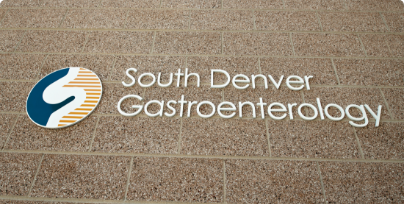South Denver GI is the region’s leader in colorectal cancer screening and prevention.
A colonoscopy is the only screening test that can detect and prevent colorectal cancer. During a colonoscopy, a gastroenterologist will examine the lining of the colon and remove precancerous polyps (adenomas).
According to a New England Journal of Medicine study, the risk of developing colorectal cancer may depend partly on having a gastroenterologist who successfully spots and removes precancerous growths during patients’ colonoscopy screenings. For every 1% increase in the physician’s adenoma detection rate, there is a 3% decrease in the odds of the patient developing colon cancer over the next decade. At South Denver GI, our 23 gastroenterologists are experts at colorectal cancer detection and consistently achieve colon polyp detection rates that exceed national screening benchmarks. Our highly-trained staff utilizes state-of-the-art technology to ensure your complete comfort as you are sedated throughout the procedure.
Colonoscopy
This outpatient procedure, lasting less than an hour, detects abnormal or cancerous polyps (adenomas) in the colon. A flexible scope with a camera is used to examine the inside of the colon and rectum.
Learn MoreColorectal Cancer
Colorectal cancer is the third most commonly diagnosed cancer in men and women in the U.S. Many colorectal cancers begin as small precancerous polyps (adenomas) that grow slowly.
Learn MoreColorectal Cancer Screening and Prevention
The most effective way to prevent colorectal cancer is through preventive screening, such as a screening colonoscopy. Adults at average risk for colorectal cancer should begin screening at age 45.
Learn MoreColorectal Polyps
Colon polyps are small masses of cells that form on the lining of the colon. Often, these polyps do not cause any symptoms, which is why regular screening is important to detect and remove polyps before they become cancerous.
Learn MoreHereditary Colorectal Cancer Syndromes
Hereditary colorectal cancer syndromes, such as lynch syndrome or familial polyposis, increase the risk of a colorectal cancer diagnosis. Regular colonoscopy screening is needed to examine the colon for cancerous polyps.
Learn MoreProcedures & Prep
Find detailed instructions for your upcoming procedure at South Denver GI, including prep instructions for a colonoscopy or fleets enema. These instructions are available for PDF download. Call 303-788-8888 with any questions about your procedure or prep instructions.
Learn MoreColonoscopy Prep FAQs
Learn MoreRequest Appointment
Click on the Schedule Appointment button to schedule an appointment with your South Denver GI provider online. If you do not wish to use our convenient online scheduling tool, please fill out the form below and our team will contact you shortly.



